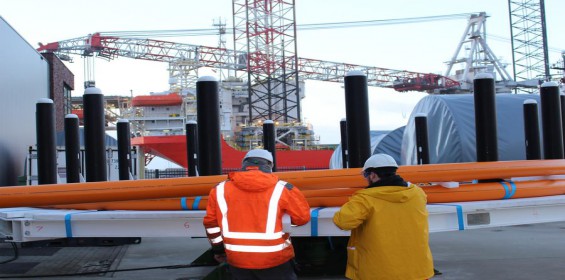TCP Jumper breaking through in deepwater environment
Published: 08 March, 2019
Airborne Oil & Gas says its TCP Jumper is breaking through in deepwater applications around the world, where it is now expanding its track record into West Africa, following successful projects in the North Sea, Gulf of Mexico and Asia. The Thermoplastic Composite Pipe is a disruptive new technology that provides huge benefits in the application of well jumper, where the flexible TCP Jumper can be easily transported and installed subsea. The main benefits to a project are:
We spool the lightweight TCP Jumper on a subsea pallet with a small minimum bend radius, reducing transportation cost to a minimum
The TCP Jumper is flexible, enabling installation without the need for metrology. This allows the TCP Jumper to be prepared upfront and installed directly after installation of the adjacent subsea components such as manifolds, thereby reducing time to first oil
The Jumper can be installed using the subsea pallet such as shown in the picture below for a 5.2 inch ID jumper, thereby greatly reducing installation cost.
The pallet can be deployed by single crane, and the pipe can be retrieved from the pallet by remotely operated vehicle and connected to the seabed components quickly and cost effectively We can transport the TCP Jumper on a small reel or pallet to location and terminate in country, thereby providing flexibility in length and reducing delivery times to a minimum
The TCP Jumper concept offers opportunities to prepare longer length on reel and cutting down to size in-country to deploy multiple jumpers in support of larger field lay-out. We always select the most cost effective material combination to match your project requirements of pressure rating, fluids and temperatures.






